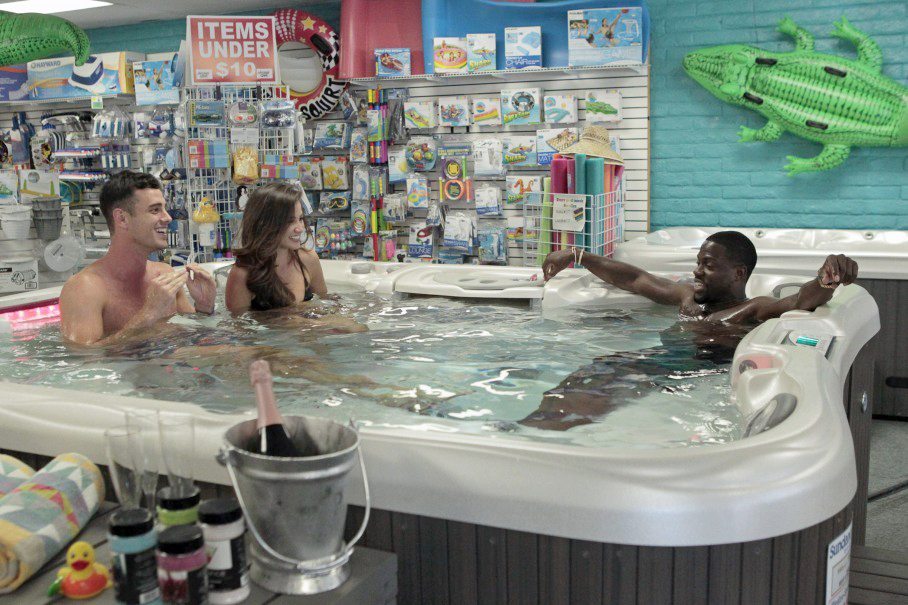Last week I did something I’m not particularly proud of — I cheered when a woman cried over her rejection on “The Bachelor.”
I cheered because this woman’s heartbreak cleared the way for another contestant to win a rose from the affable yet boring Ben. And I was rooting for this particular contestant not because I truly hope she finds love with this bumbling, 6-foot-4 dreamboat but because her acceptance meant I scored points for my “Bachelor” fantasy team.
It’s my first time participating in such a league, which some co-workers invited me to join. Similar to Fantasy Football, our league consists of about a dozen participants who fork over cash to “draft” their dream team of seven contestants vying for the Bachelor or Bachelorette’s heart. Except instead of poring over past seasons’ stats, all we have to go on is a photo of each contestant and a brief bio. Superficial judgment is the name of the game.
Each week, every player still standing can score points for various actions such as riding in a helicopter or insisting she’s there “for the right reasons.” Points are tallied weekly, and at the end of the season — when the Bachelor whittles down 28 contestants to one fianc?e — the league participants with the most points get to take home the pot. Who says romance is dead?
I don’t buy the idea that two people can fall for each other in highly directed situations over the course of a few weeks. And as a feminist, I don’t feel great about supporting this charade where women are pitted against one another for love. But I have to admit — I can’t wait for the next episode.
Hate-watching. Guilty pleasure. Whatever you want to call it, why am I so excited to find out who wins that final rose?
Rachel Dubrofsky, an associate communications professor at the University of South Florida who wrote a book on watching “The Bachelor,” suggests that it might be because the show is in on the joke.
Now in its 20th season, “The Bachelor” is a very different beast than when it premiered on ABC in 2002. As the seasons progressed, the audience and participants became so familiar with the format that the show developed “humorous irony, seeming self-reflexivity,” along the lines of ” ‘We know that you know that this is the requisite hot tub scene or overnight date, and we can’t do this with a straight face anymore,’ ” Dubrofsky says.
As for why seemingly intelligent, independent women watch this show in droves, Dubrofsky says it’s not necessarily because they agree with the values portrayed on the series, i.e. heterosexual romance, marriage and children.
“Women have conflicted, as well as complex and interesting, ways of consuming popular culture,” she says, so it’s not surprising that they like to watch the way pop culture addresses the things that society (or a room full of producers) tells them they are supposed to want. We’re in on the joke, too.
Becca Ryan, the co-creator of the official Bachelor Fantasy League blog BachFantasy.com, agrees. “We’re not taking it seriously,” she says, at least of her group of girlfriends she started the league with five years ago.
Ryan points out the show itself is formatted like a game — contestants have to strategize each week to avoid being eliminated (and, in theory, find true love). So naturally, “Bachelor” fans, much like football fans, cheer on favorites and boo competitors.
But she wouldn’t call what they do hate-watching. “I fully enjoy watching,” the digital media account director says. “There are infinite things to react to each week.” As she puts it, “The Bachelor” is a fascinating look at human behavior.
Ali Barthwell, a comedian and freelance writer whose hilarious “Bachelor” recaps appear on Vulture, says today’s TV-watching experience of live tweeting and rushing to read the best recaps is this generation’s version of water-cooler culture. We watch so that we can be in on the conversation happening around us.
And competitions such as Bachelor fantasy leagues, Bachelor Bingo and drinking games are an extension of that. There’s “all these bizarre, sexual and romantic tropes that the show gets to exploit, and that is very interesting for people to watch,” Barthwell says. “It’s the reason we still gossip with our friends about our love lives.”
At my co-workers’ fantasy league viewing party last week, the vibe was certainly more “hanging out with friends” than “crazed fans taking the competition seriously.” My host, Sarah Ventre, called it a “social experience.”
By making the experience competitive, she said, it “adds a different layer and a new element” to the repetitive nature of reality television. Especially this season with Ben as the bachelor, or as Ventre called him, a “boring, Donny Osmond look alike.”
Her fantasy league strategy? “I picked the most conventional-looking,” she said. “As uncomplicated as possible.” No one who’s going to shake things up or break the mold, unlike last season’s “Bachelorette” Kaitlyn Bristowe, who played by her own rules.




